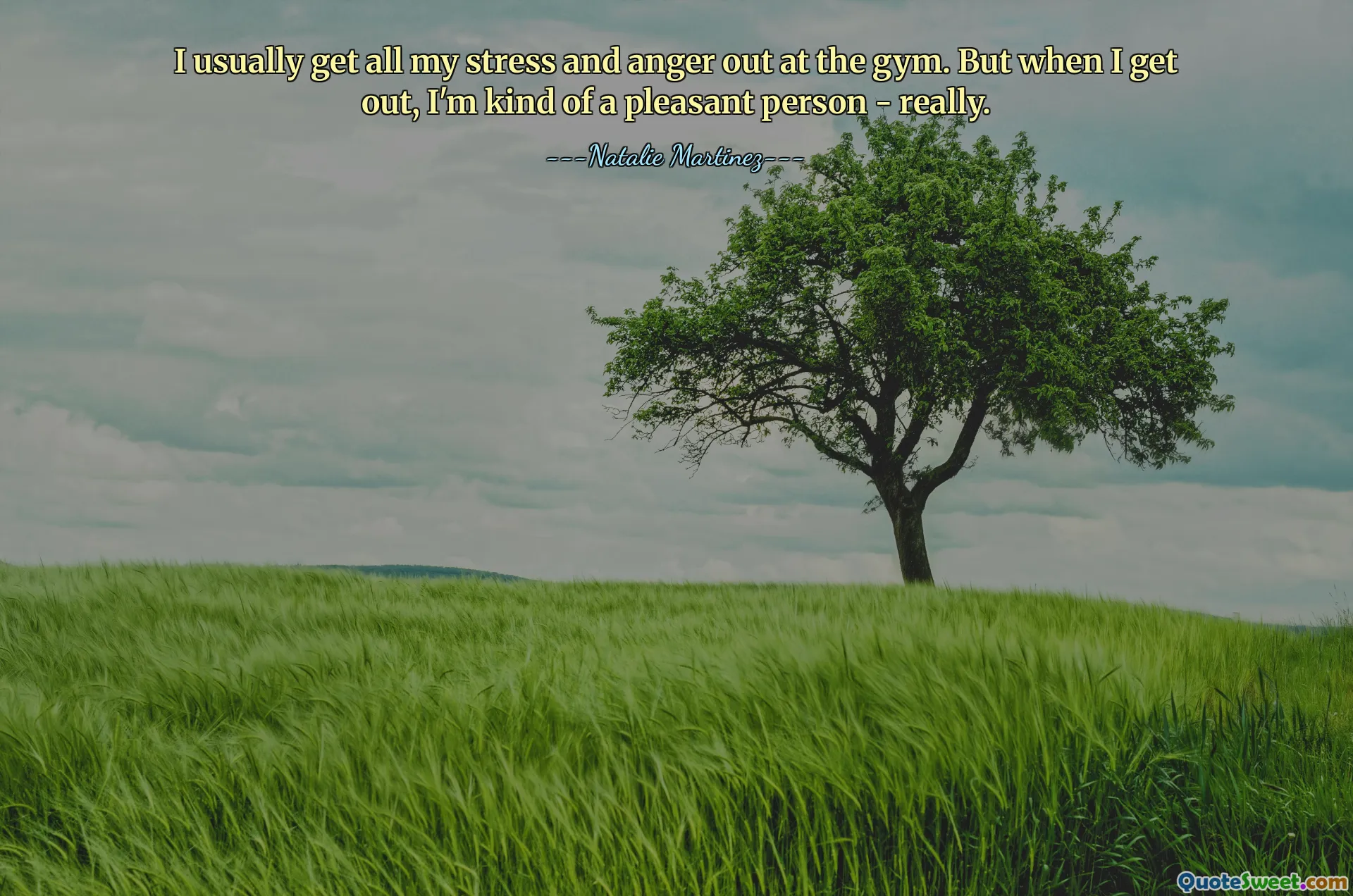
I usually get all my stress and anger out at the gym. But when I get out, I'm kind of a pleasant person - really.
Navigating stress and anger in healthy ways is crucial for overall well-being, and this quote beautifully highlights the transformative power of physical exercise. Often, our day-to-day challenges build up an internal tension that, if left unchecked, can affect our mood and interactions with others. By channeling negative emotions into something constructive—like a workout—we not only release physical tension but also mental burdens, making space for a calmer and more pleasant demeanor afterward.
What resonates strongly here is the contrast between internal turmoil and external behavior. The gym becomes more than just a place to work out the body; it symbolizes a safe outlet for emotional expression. The speaker’s genuine assertion of becoming a pleasant person after releasing stress is a testament to how emotional regulation techniques like exercise can improve relationships and social interactions. This quote serves as a reminder that the way we manage our emotions can profoundly influence the quality of our communication and how we present ourselves to the world.
Additionally, the quote challenges a common misconception that people prone to anger might be consistently unpleasant or difficult to be around. Instead, it reassures us that everyone has methods to cope, and once those emotions are addressed, positive interactions can flourish. In a society increasingly aware of mental health, the emphasis on physical activity as a coping mechanism underscores the mind-body connection and encourages others to explore similar outlets for their frustrations. Overall, it highlights a practical, accessible approach to emotional well-being grounded in everyday life.











